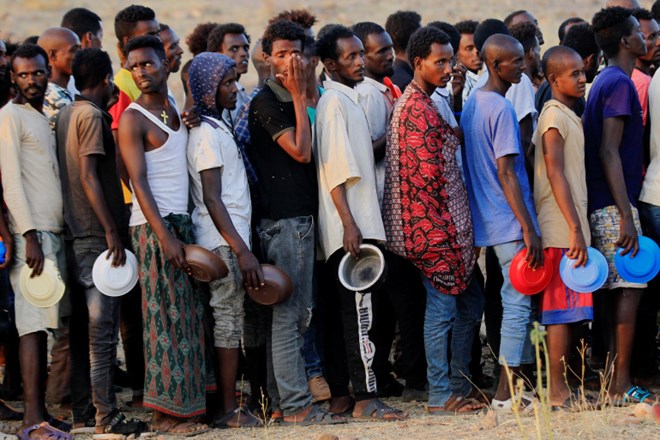By Khadra Yasien Ahmed
Sunday February 20, 2022
 Once more the region is haunted by the conjectures of famine. The
absence of rainfall, severe climate changes, conflicts and out-of-touch political
leadership are the main driving factors.
Once more the region is haunted by the conjectures of famine. The
absence of rainfall, severe climate changes, conflicts and out-of-touch political
leadership are the main driving factors.
It’s a pity that people are dying of hunger while there is plenty of
fish in the sea. This I believe captures the heartless irony of this nightmare
that is revisiting Somalia time and time again. Nevertheless, material and
financial infrastructure is prerequisite for catching the fish, preserving it,
and delivering it to the masses. If these elements are lacking, the people will
continue to experience food insecurity.
Half of the children in Somalia are at risk of developing severe malnourishment.
It’s not so much about if lives will be lost, but how many, according to
several humanitarian organizations. The loss of 250,000 lives in the 2011-famine
is a horrible reminder, half of them children under the age of five.
The vicious cycle of lack of rain leads to dry water-holes which kills
in turn both livestock and people. This forces mass displacement as people must
walk for days on end to reach major cities that are already overcrowded. Many die
along the way, others may find themselves in conditions worse than the ones
they left. Women and girls are particularly vulnerable in such situations,
having to fend for food, avoid sexual assaults and take care of their families.
In the last three months, close to 147,000 people in Somalia have been
displaced as a direct result of the drought. On top of this, parts of Somalia
is facing reoccurring floods that are wiping away homes and resulting in crop
and livestock losses, putting Somalia on the front line of severe climate changes.
As a result of the covid-19 pandemic the cost of food, fuel and water adds an
additional burden to a severely challenged people, making 4,1 million Somalis
dependent on receiving food aid to survive.
Conflicts and political instability undermine cooperation, regionally
and nationally. In the 2011-famine we saw how corruption and re-distributive
bottlenecks at all levels undermined the effort to combat the famine. Last year
Somalia experienced heavy political turmoil at all levels that underplayed the
real problems; social and economic challenges of ordinary people.
Action is needed now to avoid a disaster. Response cannot be delayed as
millions are on the verge of death. Efforts to stop the severe side effects of
this looming famine needs to be put in place. Regional cooperation is more
important than ever as famine knows no boundaries. Combating famine cannot be
divorced from well-functioning institutions and an accountable government. The
writing is on the wall, and the echoes of 2011-famine is deafening.
Will Somali politicians and international supporters acknowledge this
and act?
Khadra Yasien Ahmed
Ph.D.-student
UiB
[email protected]